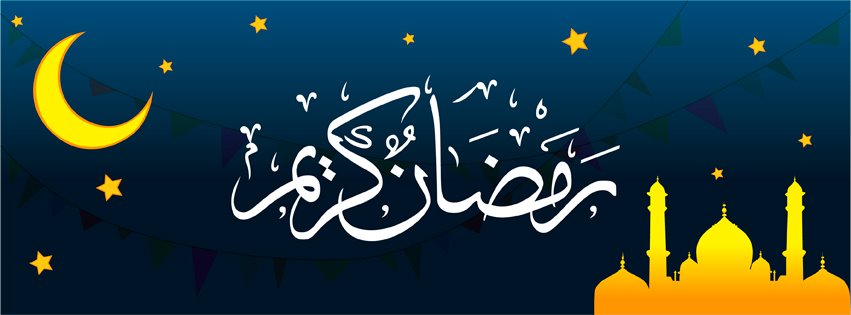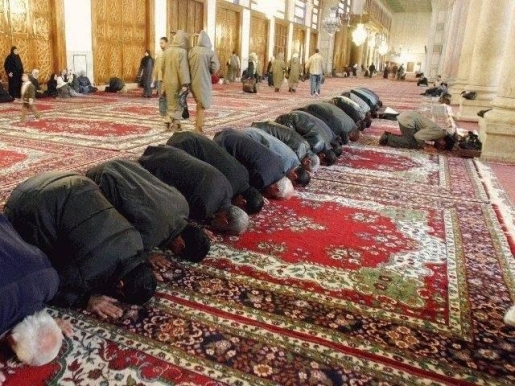Welcome to the Hardcore Husky Forums. Folks who are well-known in Cyberland and not that dumb.
قد يكون لديك شهر رمضان مبارك. الموت للكفار. أكبر الله.

oregonblitzkrieg
Member Posts: 15,288
سوف تجلب الخراب "الشيطان الأكبر". غضب الله قد تكون أسقطت أوبونثيسي الكفار الذين البوب قبالة تلك الألعاب النارية في هذا العيد شيطانية. أكبر الله. قد يكون لديك شهر رمضان مبارك وسريعة مجيدة. الموت للكفار. الله على استعداد ونحن
(May you have a blessed Ramadan and a glorious fast. Death to the infidels. God willing we will bring ruin to the Great Satan. May Allah's wrath be brought down upon these infidels who pop off their fireworks, grill their Hebrew frankfurters and let their women be seen in public without burqas on this Zionist holiday. Allah ahkbar!








(May you have a blessed Ramadan and a glorious fast. Death to the infidels. God willing we will bring ruin to the Great Satan. May Allah's wrath be brought down upon these infidels who pop off their fireworks, grill their Hebrew frankfurters and let their women be seen in public without burqas on this Zionist holiday. Allah ahkbar!







Comments
-
sweet mother of fuck....
-
DJ,
it's time -
Run his ass
-
Islam
For other uses, see Islam (disambiguation).
The Kaaba, in Mecca, Hejaz region, today's Saudi Arabia, is the center of Islam. Muslims from all over the world gather there to pray in unity.
Islam (/ˈɪslɑːm/;[note 1] Arabic: الإسلام, al-ʾIslām IPA: [ælʔɪsˈlæːm] ( )[note 2]) is a monotheistic and Abrahamic religion articulated by the Qur'an, a book considered by its adherents to be the verbatim word of God[1] (Arabic: الله Allāh) and by the teachings and normative example (called the Sunnah and composed of hadith) of Muhammad c. 570 CE – c. 8 June 632 CE], considered by them to be the last prophet of God. An adherent of Islam is called a Muslim.
Muslims believe that God is one and incomparable [2] and the purpose of existence is to worship God.[3] Muslims also believe that Islam is the complete and universal version of a primordial faith that was revealed before many times throughout the world, including notably through Adam, Noah, Abraham, Moses and Jesus, whom they consider prophets.[4] They maintain that the previous messages and revelations have been partially misinterpreted or altered over time,[5] but consider the Arabic Qur'an to be both the unaltered and the final revelation of God.[6] Religious concepts and practices include the five pillars of Islam, which are basic concepts and obligatory acts of worship, and following Islamic law, which touches on virtually every aspect of life and society, providing guidance on multifarious topics from banking and welfare, to family life and the environment.[7][8]
Most Muslims are of two denominations: Sunni (75–90%) [9] or Shia (10–20%).[10] About 13% of Muslims live in Indonesia,[11] the largest Muslim-majority country, 25% in South Asia,[11] 20% in the Middle East,[12] and 15% in Sub-saharan Africa.[13] Sizable minorities are also found in Europe, China, Russia, and the Americas. Converts and immigrant communities are found in almost every part of the world (see Islam by country). With about 1.6 billion followers or 23% of earth's population,[14][15] Islam is the second-largest religion and arguably the fastest-growing major religion in the world.[16][17][18]
Etymology and meaning
Articles of faith
Five pillars
Law and jurisprudence
History
Denominations
The distribution of Sunni, Shia, and Ibadi branches of Islam.
An overview of the major schools and branches of Islam.
Main article: Islamic schools and branches
See also: Shia–Sunni relations
Sunni
Main article: Sunni Islam
The largest denomination in Islam is Sunni Islam, which makes up 75%–90% of all Muslims.[9] Sunni Muslims also go by the name Ahl as-Sunnah which means "people of the tradition [of Muhammad]".[217][218] These hadiths, recounting Muhammad's words, actions, and personal characteristics, are preserved in traditions known as Al-Kutub Al-Sittah (six major books).
Sunnis believe that the first four caliphs were the rightful successors to Muhammad; since God did not specify any particular leaders to succeed him and those leaders were elected. Sunnis believe that anyone who is righteous and just could be a caliph but they have to act according to the Qur'an and the Hadith, the example of Muhammad and give the people their rights.
The Sunnis follow the Quran, then the Hadith. Then for legal matters not found in the Quran or the Hadith, they follow four madh'habs (schools of thought): Hanafi, Hanbali, Maliki and Shafi'i, established around the teachings of Abū Ḥanīfa, Ahmad bin Hanbal, Malik ibn Anas and al-Shafi'i respectively.
All four accept the validity of the others and a Muslim may choose any one that he or she finds agreeable.[219] The Salafi (also known as Ahl al-Hadith (Arabic: أهل الحديث; The people of hadith), or the pejorative term Wahhabi by its adversaries) is an ultra-orthodox Islamic movement which takes the first generation of Muslims as exemplary models.[220]
Shia
Main article: Shia Islam
The Shia constitute 10–20% of Islam and are its second-largest branch.[10]
While the Sunnis believe that a Caliph should be elected by the community, Shia's believe that Muhammad appointed his son-in-law, Ali ibn Abi Talib, as his successor and only certain descendants of Ali could be Imams. As a result, they believe that Ali ibn Abi Talib was the first Imam (leader), rejecting the legitimacy of the previous Muslim caliphs Abu Bakr, Uthman ibn al-Affan and Umar ibn al-Khattab.
Shia Islam has several branches, the largest of which is the Twelvers, followed by Zaidis and Ismailis. Different branches accept different descendants of Ali as Imams. After the death of Imam Jafar al-Sadiq considered the sixth Imam by the Twelvers, and the Ismaili's, the Ismailis started to consider his son Isma'il ibn Jafar as the Imam and the Twelver Shia's (Ithna Asheri) started to consider his other son Musa al-Kazim as their seventh Imam. While the Zaydis consider Zayd ibn Ali, the uncle of Imam Jafar al-Sadiq, as their fifth Imam.
Other smaller groups include the Bohra and Druze,[221] as well as the Alawites and Alevi. Some Shia branches label other Shia branches that do not agree with their doctrine as Ghulat.
Sufism
Sufi whirling dervishes in Istanbul, Turkey
Main article: Sufism
Sufism (Tasawwuf) is a mystical-ascetic approach to Islam that seeks to find divine love and knowledge through direct personal experience of God.[222] By focusing on the more spiritual aspects of religion, Sufis strive to obtain direct experience of God by making use of "intuitive and emotional faculties" that one must be trained to use.[223] However, Sufism has been criticized by the Salafi sect for what they see as an unjustified religious innovation.[224][225] Hasan al-Basri was inspired by the ideas of piety and condemnation of worldliness preached by Muhammad and these ideas were later further developed by Al-Ghazali in his books on Sufism. Sufi-majority countries include Senegal, Chad and Niger.[226]
Other denominations
Ahmadiyya is an Islamic reform movement (with Sunni roots) founded by Mirza Ghulam Ahmad[227] that began in India in 1889 and is practiced by over ten million[228] Muslims around the world.
Non-denominational Muslims are Muslims who do not restrict their religious affiliation to any particular branch of Islam.
The Ibadi is a sect that dates back to the early days of Islam and is a branch of kharijite. Unlike most Kharijite groups, Ibadism does not regard sinful Muslims as unbelievers.
Mahdavia is an Islamic sect that believes in a 15th-century mahdi, Muhammad Jaunpuri
The Quranists are Muslims who generally reject the Hadith.
Yazdânism is seen as a blend of local Kurdish beliefs and Islamic Sufi doctrine introduced to Kurdistan by Sheikh Adi ibn Musafir in the 12th century.
There are also black Muslim movements such as the Nation of Islam (NOI), Five-Percent Nation and Moorish scientists.
Demographics
Culture
The front of the Nur-Astana Mosque in Astana, Kazakhstan. Nur-Astana Mosque is the country's largest mosque.
Main article: Islamic culture
The term "Islamic culture" could be used to mean aspects of culture that pertain to the religion, such as festivals and dress code. It is also commonly used to denote the cultural aspects of traditionally Muslim people.[244] Finally, "Islamic civilization" may also refer to the aspects of the synthesized culture of the early Caliphates, including that of non-Muslims,[245] sometimes referred to as 'Islamicate'.
Architecture
Sultan Ahmed Mosque in Istanbul, Turkey.
Main article: Islamic architecture
Perhaps the most important expression of Islamic art is architecture, particularly that of the mosque (four-iwan and hypostyle).[246] Through the edifices, the effect of varying cultures within Islamic civilization can be illustrated. The North African and Spanish Islamic architecture, for example, has Roman-Byzantine elements, as seen in the Great Mosque of Kairouan which contains marble and porphyry columns from Roman and Byzantine buildings,[247] in the Alhambra palace at Granada, or in the Great Mosque of Cordoba.
Art
Detail of arabesque decoration at the Alhambra in Spain.
Main article: Islamic art
Islamic art encompasses the visual arts produced from the 7th century onwards by people (not necessarily Muslim) who lived within the territory that was inhabited by Muslim populations.[248] It includes fields as varied as architecture, calligraphy, painting, and ceramics, among others.
Making images of human beings and animals is frowned on in many Islamic cultures and connected with laws against idolatry common to all Abrahamic religions, as 'Abdullaah ibn Mas'ood reported that Muhammad said, "Those who will be most severely punished by Allah on the Day of Resurrection will be the image-makers" (reported by al-Bukhaari, see al-Fath, 10/382). However this rule has been interpreted in different ways by different scholars and in different historical periods, and there are examples of paintings of both animals and humans in Mughal, Persian and Turkish art. The existence of this aversion to creating images of animate beings has been used to explain the prevalence of calligraphy, tessellation and pattern as key aspects of Islamic artistic culture.[citation needed]
Calendar
Main article: Islamic calendar
The formal beginning of the Muslim era was chosen to be the Hijra in 622 CE, which was an important turning point in Muhammad's fortunes. The assignment of this year as the year 1 AH (Anno Hegirae) in the Islamic calendar was reportedly made by Caliph Umar. It is a lunar calendar with days lasting from sunset to sunset.[249] Islamic holy days fall on fixed dates of the lunar calendar, which means that they occur in different seasons in different years in the Gregorian calendar. The most important Islamic festivals are Eid al-Fitr (Arabic: عيد الفطر) on the 1st of Shawwal, marking the end of the fasting month Ramadan, and Eid al-Adha (عيد الأضحى) on the 10th of Dhu al-Hijjah, coinciding with the pilgrimage to Mecca.[250]
Criticism
Main article: Criticism of Islam
Criticism of Islam has existed since Islam's formative stages. Early written criticism came from Christians, prior to the ninth century, many of whom viewed Islam as a radical Christian heresy.[251] Later there appeared criticism from the Muslim world itself, and also from Jewish writers and from ecclesiastical Christians.[252][253][254]
Objects of criticism include the morality of the life of Muhammad, the last prophet of Islam, both in his public and personal life.[254][255] Issues relating to the authenticity and morality of the Qur'an, the Islamic holy book, are also discussed by critics.[256][257] Other criticisms focus on the question of human rights in modern Islamic nations, and the treatment of women in Islamic law and practice.[258][259] In wake of the recent multiculturalism trend, Islam's influence on the ability of Muslim immigrants in the West to assimilate has been criticized.[260]
See also
References
Further reading
External links
Read in another language
Wikipedia ® MobileDesktop
Content is available under CC BY-SA 3.0 unless otherwise noted.
Terms of UsePrivacy



